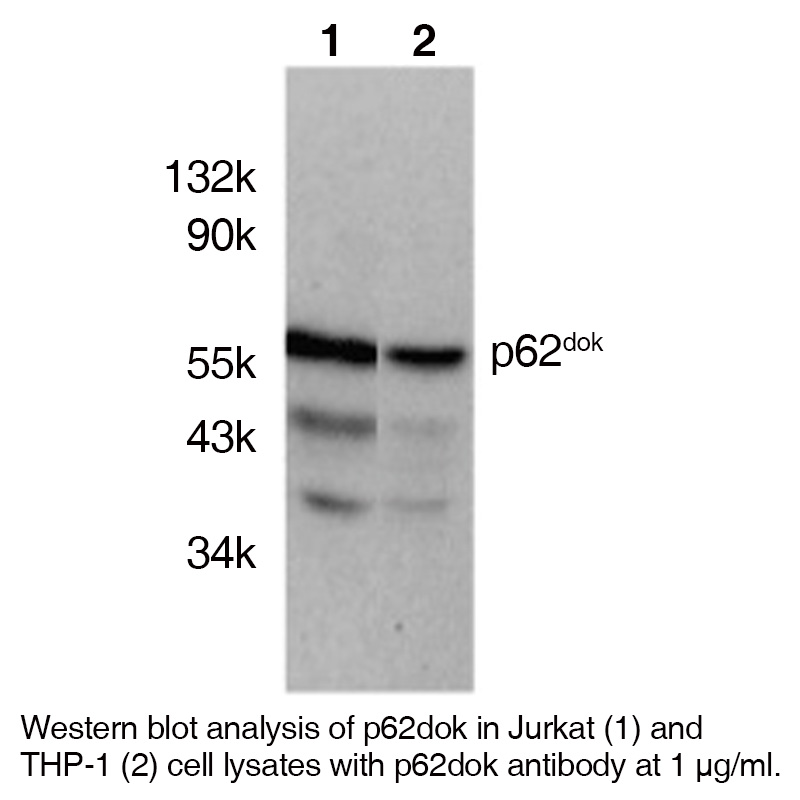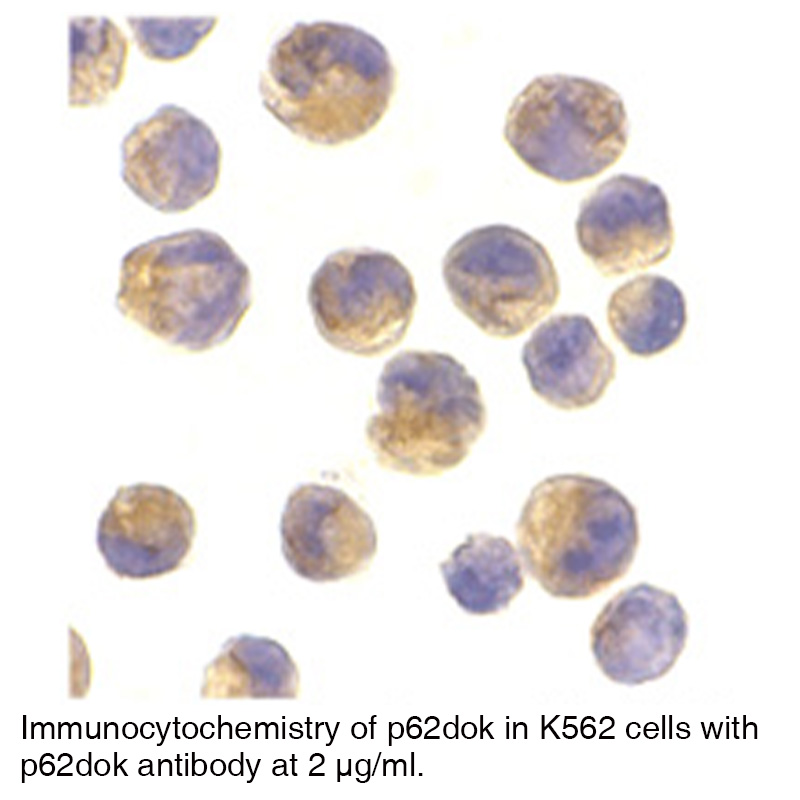Anti-Human Tyrosine Kinase Substrate p62dok (CT)
Data
- -
- -
Antibody DetailsProduct DetailsReactive Species Human Host Species Rabbit Immunogen PN:P188 Product Concentration 0.5 mg/ml Formulation This polyclonal antibody is formulated in phosphate buffered saline (PBS) pH 7.4 containing 0.02% sodium azide as a preservative. Storage and Handling This polyclonal antibody is stable for at least one week when stored at 2-8°C. For long term storage, aliquot in working volumes without diluting and store at –20°C in a manual defrost freezer. Avoid Repeated Freeze Thaw Cycles. Country of Origin USA Shipping Next Day Ambient RRIDAB_2831532 Each investigator should determine their own optimal working dilution for specific applications. See directions on lot specific datasheets, as information may periodically change. DescriptionDescriptionSpecificity Rabbit Anti-Human Tyrosine Kinase Substrate p62dok (p62 DOK) recognizes an epitope near the C-terminus of Human p62 DOK. This polyclonal antibody was purified using affinity chromatography. Background Signals from most growth factors and cytokines are transduced by receptor tyrosine kinases or non-receptor tyrosine kinases. Activated tyrosine kinases phosphorylate their substrates, which mediate the cellular response to extracellular stimuli. A long-sought major substrate termed p62dok (downstream of tyrosine kinase) for many tyrosine kinases including c-kit, v-abl, v-Fps, v-Src, v-Fms, and activated EGF, PDGF, IGF, VEGF and insulin receptors was identified recently from human and mouse by several laboratories. Upon phosphorylation, p62dok forms a complex with the ras GTPase-activating protein (RasGAP). p62dok represents a new family with very recently identified p56dok. References & Citations1. Carpino, N. et al. (1997) Cell 88:197 2. Yamanashi, Y. et al. (1997) Cell 88:205 3. Holland, SJ. et al. (1997) EMBO J. 16:3877 4. Di Cristofano, A. et al. (1998) J. Biol. Chem. 273:4827 Technical ProtocolsCertificate of Analysis |
Related Products
- -
- -
Prod No. | Description |
|---|---|
P161 | |
P188 |




